
Politics
09:33, 13-Nov-2018
UK's May: Brexit talks are nearing their endgame
Updated
08:25, 16-Nov-2018
CGTN
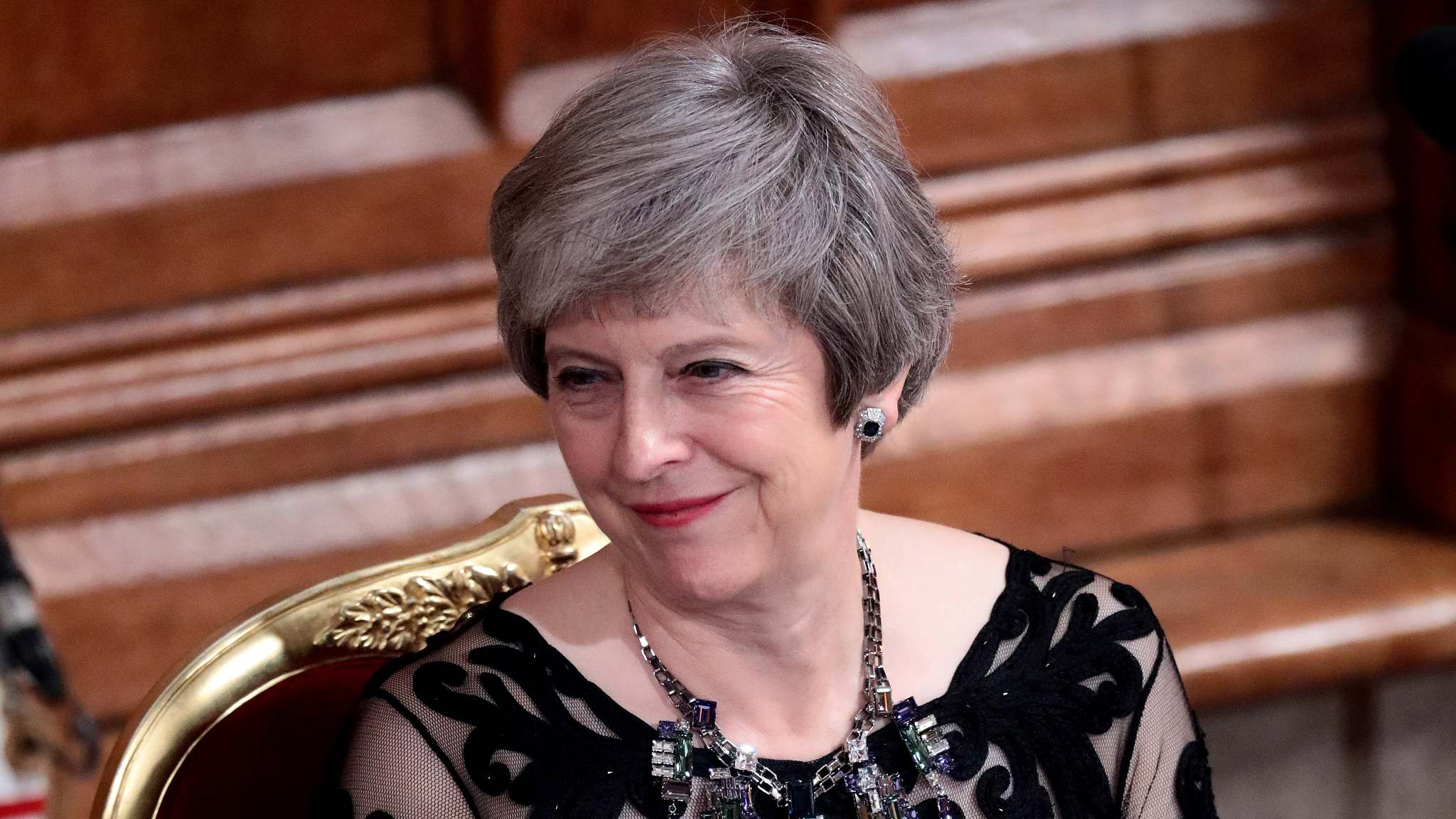
British Prime Minister Theresa May said on Monday that there were still considerable unresolved issues with the European Union over Brexit as the two sides approached the "endgame" in negotiations for departure from the bloc.
May described the negotiations as immensely difficult and said there would not be an agreement at any cost.
"The negotiations for our departure are now in the endgame," May said in a speech at the Guildhall in London's financial district. "We are working extremely hard, through the night, to make progress on the remaining issues in the Withdrawal Agreement, which are significant."
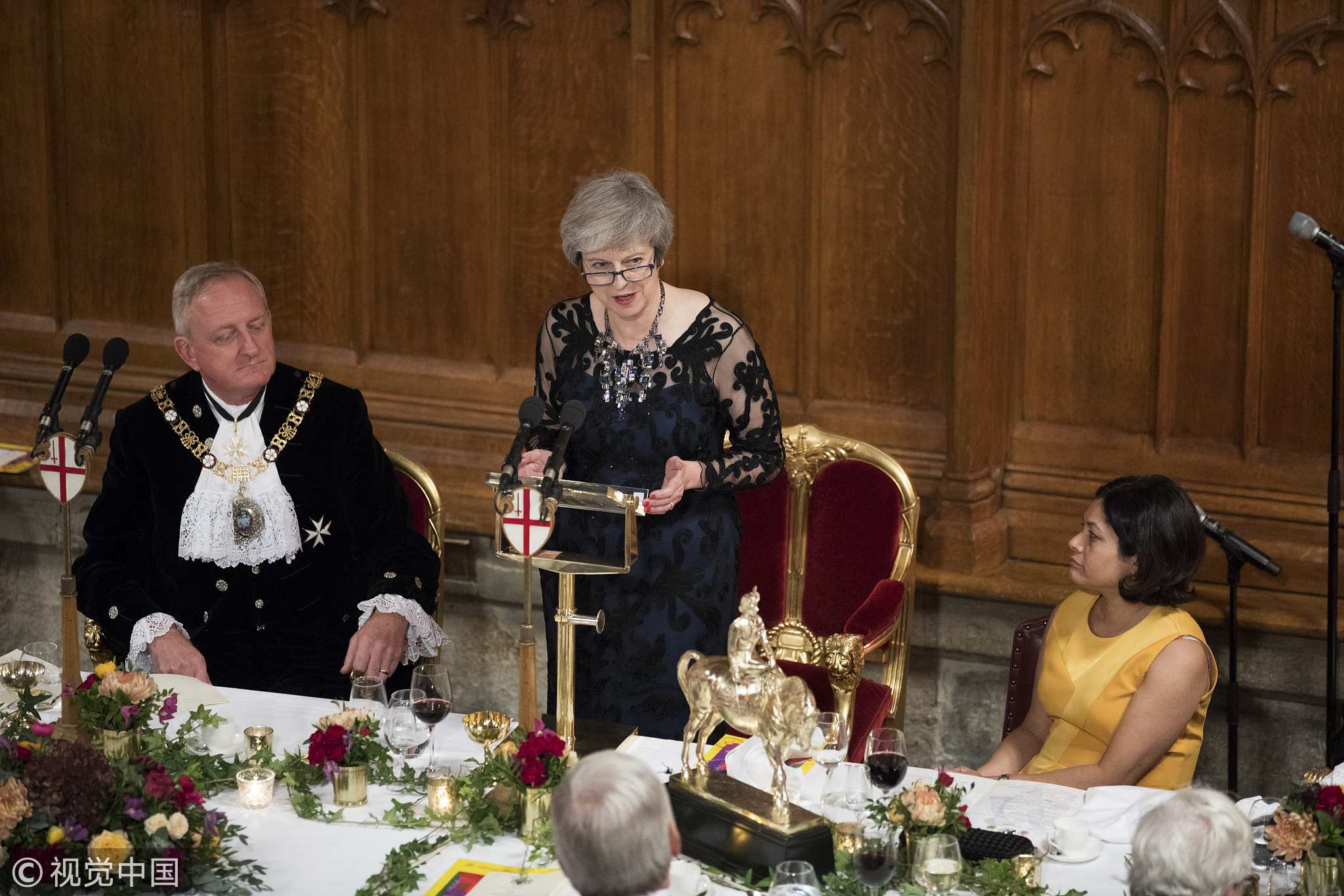
UK Prime Minister Theresa May speaks at the Lord Mayor's Banquet at Guildhall in London, UK, November 12, 2018. /VCG Photo
UK Prime Minister Theresa May speaks at the Lord Mayor's Banquet at Guildhall in London, UK, November 12, 2018. /VCG Photo
Her comments came after Michel Barnier, EU's chief Brexit negotiator, told ministers from the remaining 27 member states that “the parameters of a possible agreement are very largely defined.”
Barnier said progress had been made in the latest round of negotiations, which ran until 2:45 a.m. on Monday morning, adding: “As in any negotiation, the final stretch is always the most difficult.” One national diplomat in the room said: “We all know that this is it.”
He added the main elements of an exit treaty text are ready to present to the British cabinet on Tuesday.
With under five months, until Britain leaves the EU, talks have stalled over a disagreement on the so-called Northern Irish backstop, an insurance policy to ensure there will be no return to a hard border on the island of Ireland if a future trading relationship is not agreed in time.
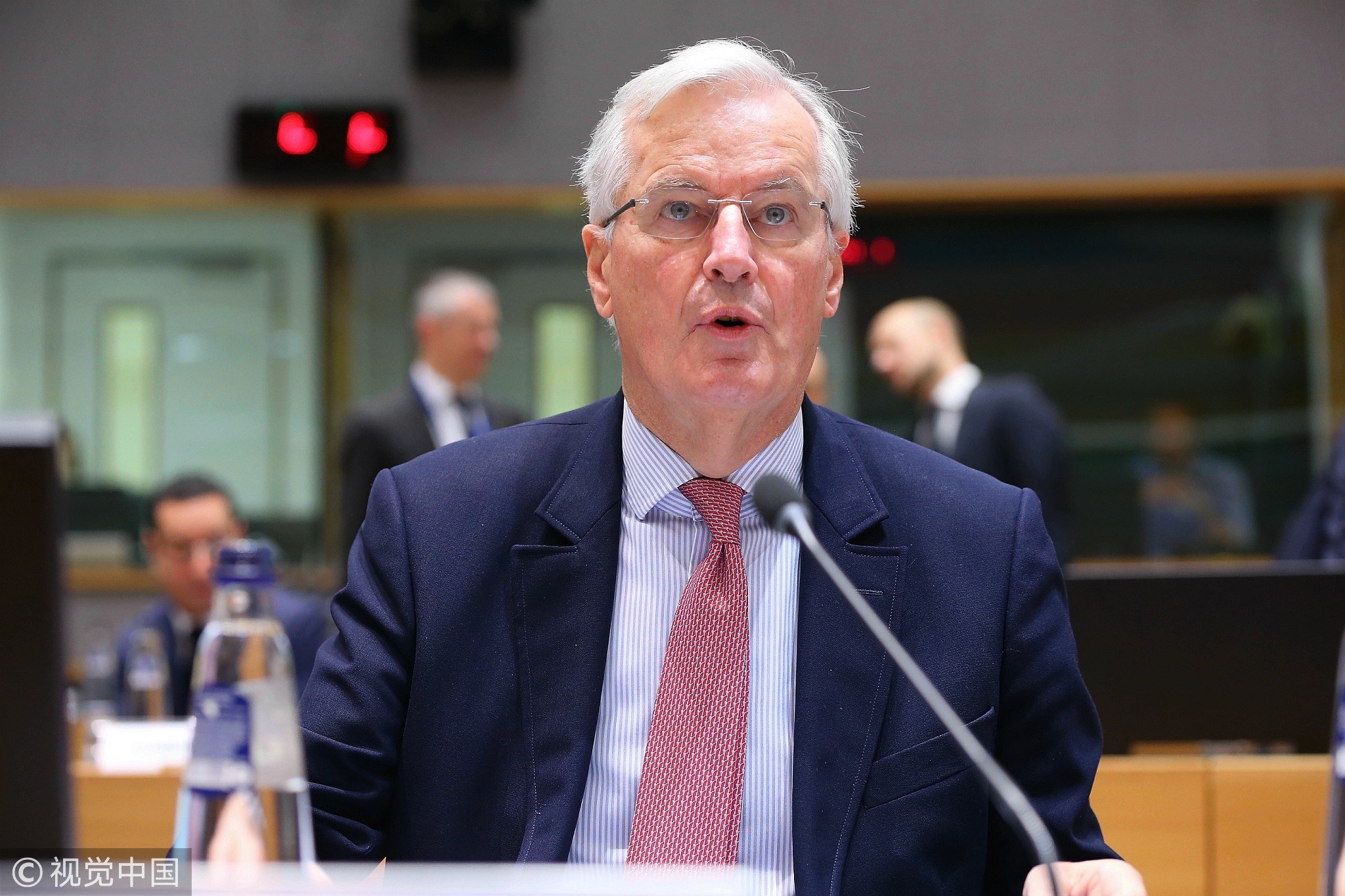
EU Chief Brexit Negotiator Michel Barnier attends EU general affairs council meeting in Brussels, Belgium, November 12, 2018. /VCG Photo
EU Chief Brexit Negotiator Michel Barnier attends EU general affairs council meeting in Brussels, Belgium, November 12, 2018. /VCG Photo
May's attempt to unblock the talks by considering an extension to a status-quo transition period beyond the current proposed end date of December 2021 has both angered eurosceptics and EU supporters in her party.
Fears that the proposals would mean keeping Britain inside the EU's customs union indefinitely or that Northern Ireland would have to accept different rules and regulations to the rest of the United Kingdom have focused opposition to May's deal.
Negotiations are continuing this week, but officials are warning unless there is dramatic progress by the end of Wednesday there is unlikely to be a summit this month to approve a Brexit deal.
Both sides need an agreement to keep trade flowing between the world's biggest trading bloc and the fifth largest national economy.
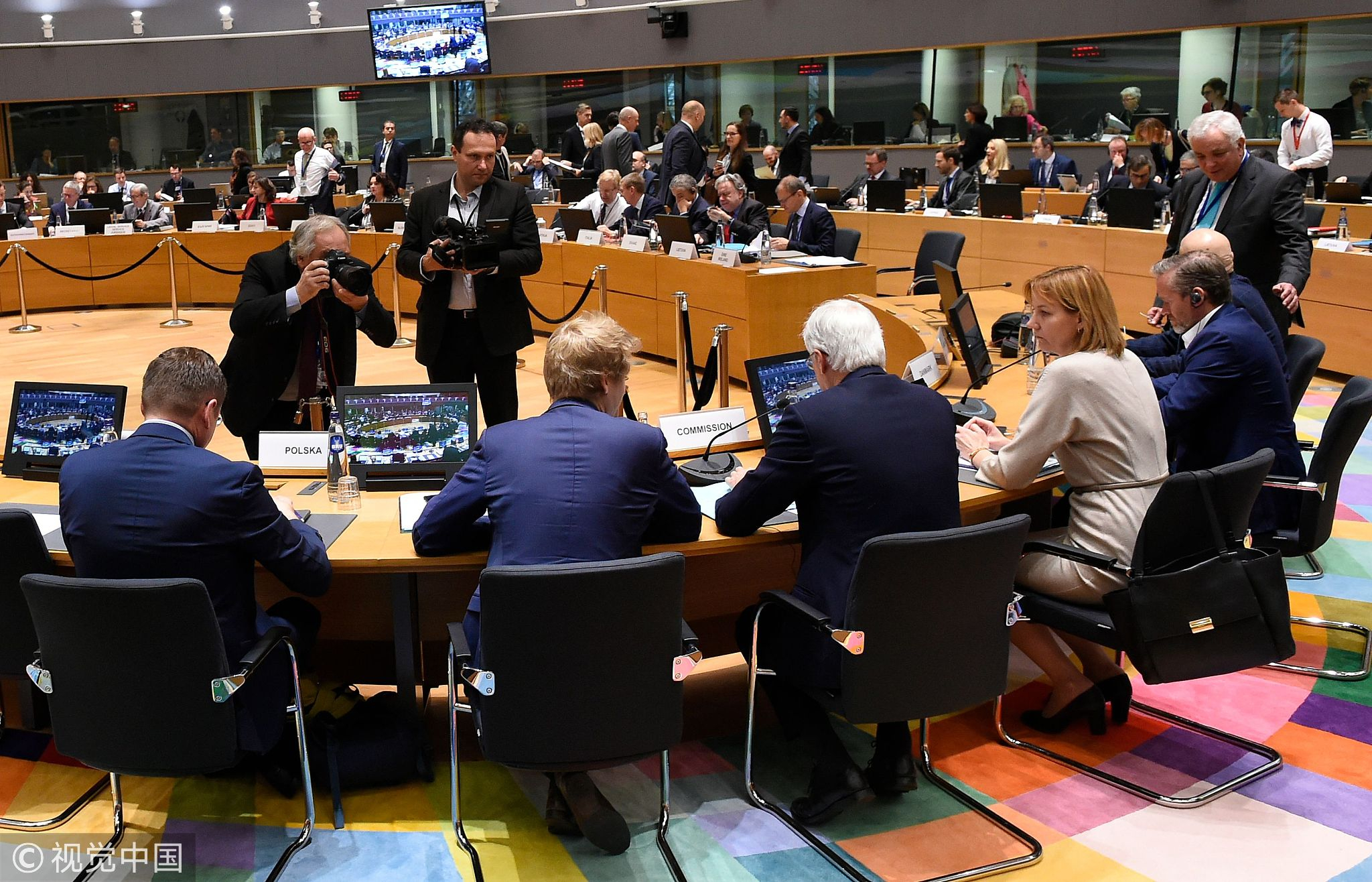
Chief EU negotiator for Brexit Michel Barnier (C-back) attends a General Affairs Council focused on the Article 50 of the EU Treaty, at the European Council in Brussels, November 12, 2018. /VCG Photo
Chief EU negotiator for Brexit Michel Barnier (C-back) attends a General Affairs Council focused on the Article 50 of the EU Treaty, at the European Council in Brussels, November 12, 2018. /VCG Photo
Not at any cost
The prime minister told the audience in her annual speech at the Lord Mayor's banquet that she would not shy away from tough decisions.
"Both sides want to reach an agreement. But what we are negotiating is immensely difficult," May said. "This will not be an agreement at any cost."
May said her first trade mission after Brexit would be to the Asia Pacific region as she wants Britain to strike trade deals with the fastest growing economies outside of Europe.
In what is traditionally a major foreign policy speech, May also said that Britain was open to better relations with Russia after ties plunged to low over earlier this year's spy poisoning row.
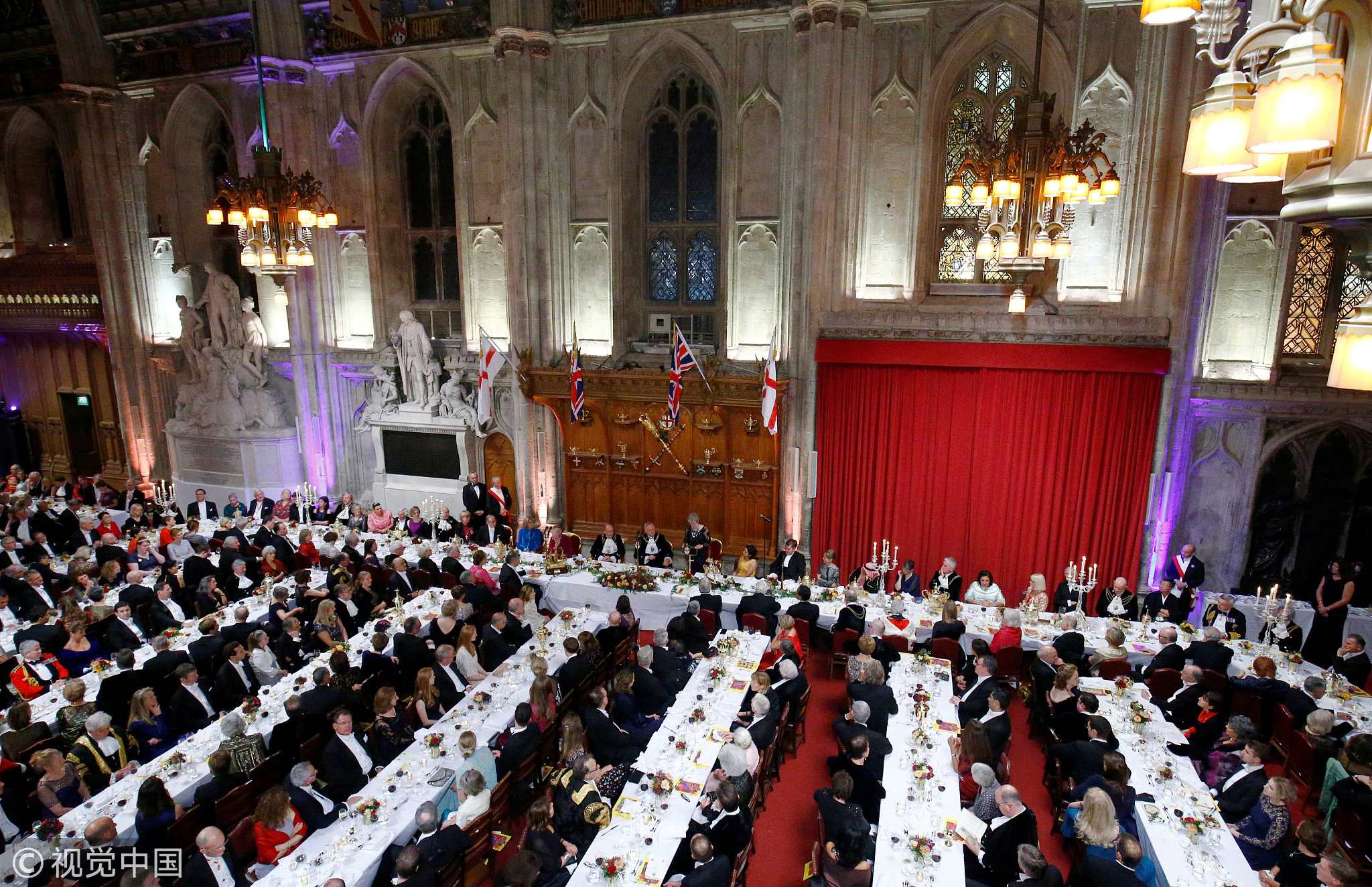
Britain's Prime Minister Theresa May delivers a speech during the annual Lord Mayor's Banquet at Guildhall in London, Britain, November 12, 2018. /VCG Photo
Britain's Prime Minister Theresa May delivers a speech during the annual Lord Mayor's Banquet at Guildhall in London, Britain, November 12, 2018. /VCG Photo
She said that Britain was "ready to respond in kind" if there were signs of increased cooperation from Russia.
A year ago, May used a speech at the same venue to accuse Moscow of military aggression and of meddling in elections, some of her strongest criticism even before spy row.
This year, she said that the action taken since - including the largest ever coordinated expulsion of Russian intelligence officers – had "fundamentally degraded" Russia's intelligence capability.
Source(s): Reuters

SITEMAP
Copyright © 2018 CGTN. Beijing ICP prepared NO.16065310-3
Copyright © 2018 CGTN. Beijing ICP prepared NO.16065310-3